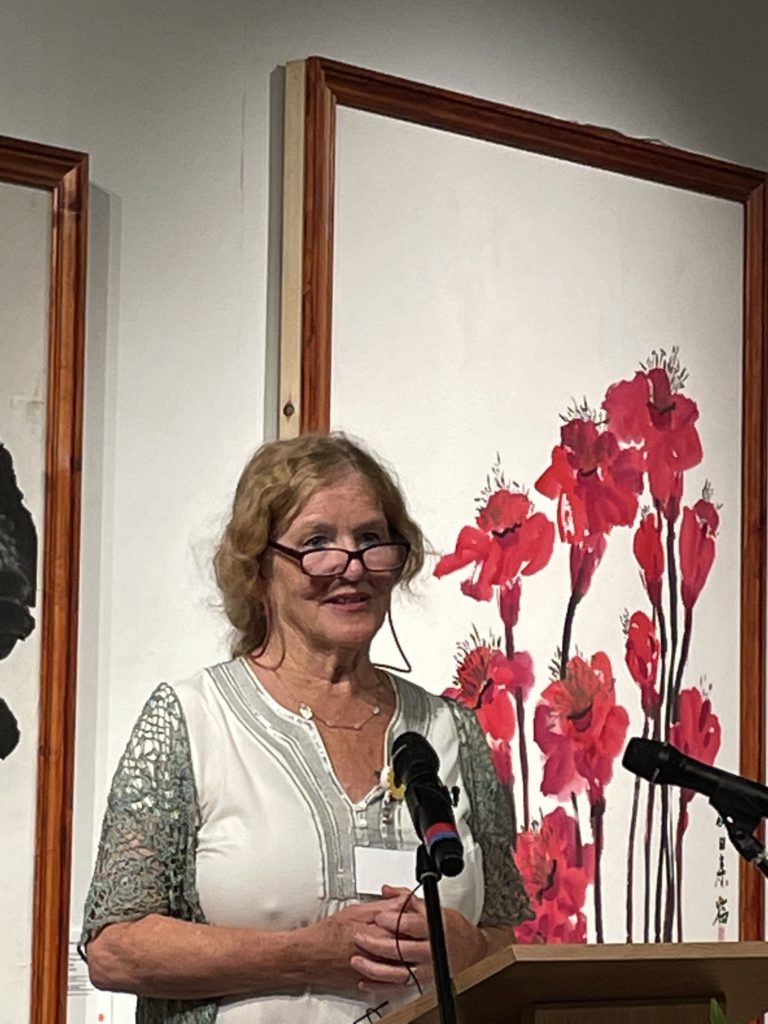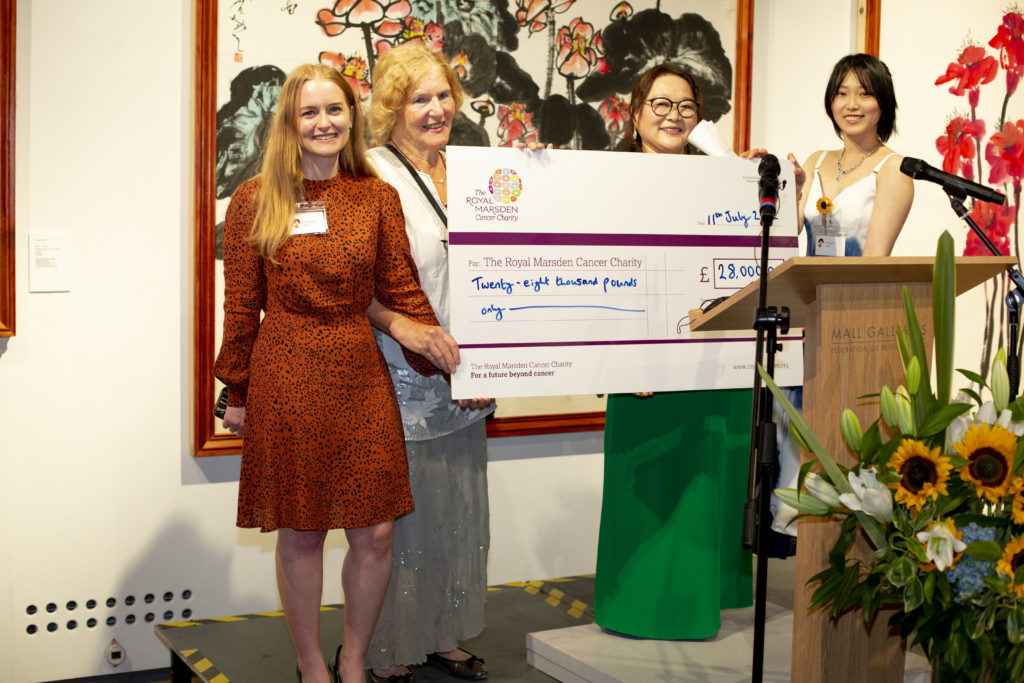Speech of Audrey Arden-Jones
Thank you so much. I am absolutely delighted to be here this evening. Huaicun, your exhibition is beautiful, and we are so grateful to you for supporting The Royal Marsden Cancer Charity so generously – it means a lot to us.

The Royal Marsden Hospital was founded 165 years ago and was the world’s first hospital dedicated to cancer.
Today, along with our academic partner, the Institute of Cancer Research we are the largest comprehensive cancer centre in Europe and rank as one of the best cancer research centres in the world in terms of our research impact.
Over, 59,000 NHS and private patients are treated at the hospital every year.
The Royal Marsden ensures that each patient is given the very best treatment and care, and are supported not just physically, but emotionally and psychologically too.
The cancer journey can be uncertain and frightening, and The Royal Marsden always puts patients at the heart of its work, supporting them at every stage of their cancer journey.
The Royal Marsden Cancer Charity raises money solely to support The Royal Marsden. The Charity supports the hospital so it can continue to make a significant difference to the lives of its patients and their loved ones, as well as cancer patients across the world.
There is a well-documented link between access to art in hospitals and patient wellbeing.
Art can relax cancer patients and make them feel better physically, with technical satisfaction, aesthetic beauty and pleasure being implicated in the reduction of symptoms and the side effects of treatment.
Our current arts programme at The Royal Marsden is evidence based and evidence generating. It includes the provision of professional musicians and artists working on projects that transform the environment and experience for our patients, their friends and families, and our staff, through arts participation.
Examples of this include music- and art-making workshops, music concerts, temporary art exhibitions, with a focus on ensuring access for all who wish to participate.
But of course, our core collection of art provides an opportunity for quiet contemplation too.
Evidence from the World Health Organisation shows that art, and participation in art projects, eases anxiety, stress and depression for both cancer patients and staff, can shorten the length of a patient’s hospital stay and even reduce the need for pain-killing medication. Images of nature in particular have been shown to improve healthcare outcomes.

As we are here this evening to enjoy these beautiful and poetic artworks by Huaicun, I want to tell you about the power of displaying visual art. Visual arts projects have been shown to have a significant impact on both patients and staff within hospital environments.
In a recent national newspaper article, a patient from The Royal Marsden talked about the power of art. She talked about what she remembered from the first few weeks after diagnosis. At the age of 42, and as a single mother to an eight-year-old daughter, she remembered the pink blossom on the cherry trees at the back of the hospital and the artwork lining the walls inside.
She recalls that over the months that followed, some of those paintings became like old friends. The artwork served as a reminder of life beyond the hospital walls. In the blood testing room, there was a pastel sketch of the riverside and a photograph of a lake surrounded by an autumnal forest. During a very difficult time for her personally, she found that the sight of all that glassy water, and the mist floating above it, transported her to another place.
And only last week, the arts team were sent an email from a gentleman who said, “As a patient I am very struck by the art collection and have found much pleasure in it.”
What we are trying to achieve is not to have art for art’s sake. We are interested in the impact it has on wellbeing.
There is no core funding for arts provision within the NHS, so we are extremely grateful that the Royal Marsden Cancer Charity helps support our comprehensive arts programme, which creates an engaging hospital environment for those affected by cancer. So, we thank Huaicun for her beautiful exhibition and her generosity to the Arts programme, which will be used to continue this good work.